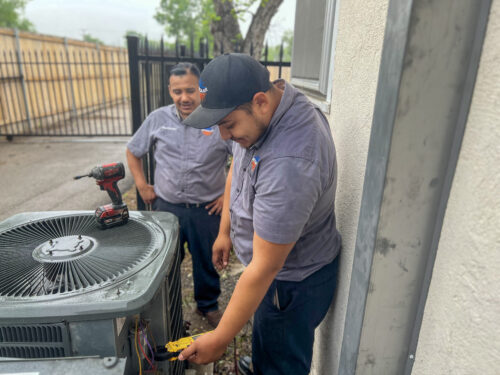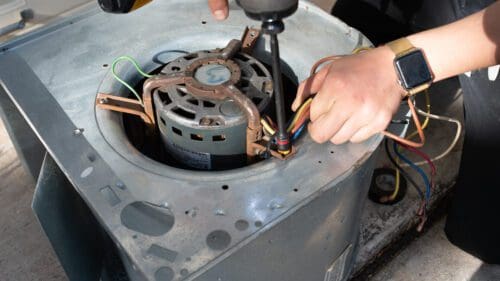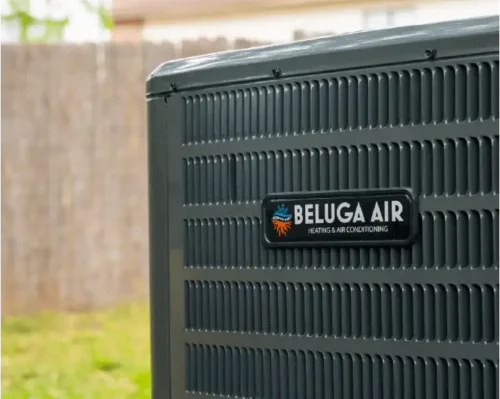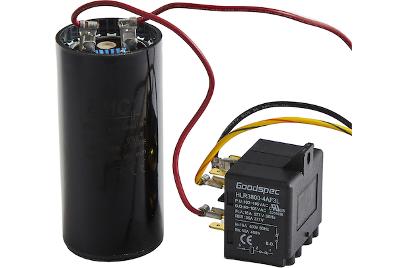Freon 101 – Introduction
Welcome to Freon 101! Your HVAC system is an essential part of keeping your home comfortable, and Freon plays a key role in its function. The Freon, or refrigerant, is the chemical that is used to cool the air in your home and maintain a comfortable temperature. In this article, you will get an introduction to Freon, its history, and the different types of Freon used in modern HVAC systems. We will also cover how to detect a Freon leak in your system and what to do about it. Lastly, we will provide Beluga Air’s recommendations for what to do if you have a leaking system. With this information, you will be better equipped to make the best decision possible when it comes to keeping your home cool.
History of Refrigerant in HVAC Systems
The use of refrigerants in HVAC systems dates back to the late 19th century. At the time, chemicals such as ammonia, methyl chloride, and sulfur dioxide were used as a coolant in air conditioning systems. These chemicals were toxic and flammable, so they had to be handled with care. As technology improved and new coolants were developed, the use of these dangerous substances was discontinued.
Today, the most common type of refrigerant used in HVAC systems is Freon, a chlorofluorocarbon. Freon is non-toxic and non-flammable, making it much safer to handle and use. This modern refrigerant has become the industry standard and is used in most HVAC systems. With this new technology, air conditioning systems can be made more efficient, reliable and can often save homeowners money on their energy bills.
Modern HVAC Coolant Types (Refrigerant)
Today, the number of HVAC coolant types available is vast and varied. The two main types are hydrofluorocarbons (HFCs) and hydrochlorofluorocarbons (HCFCs). HFCs are most commonly used in home and commercial cooling because they are non-toxic and non-flammable, while HCFCs contain some chlorine particles, making them slightly more hazardous. Both coolants can be used in air conditioners and heat pumps.
It’s essential to understand the type of coolant used in your HVAC system and make sure it’s compatible with the unit’s manufacturer specifications. For older units, especially those installed before the year 2010, it’s likely that your system uses R-22, also referred to as Freon. This type of coolant has been phased out in the US due to its high ozone-depleting potential and increased environmental impact. It’s important to note that servicing and refilling units using R-22 might be difficult and expensive since it’s no longer in production. If you’re unsure what type of coolant is in your HVAC system, call a professional like Beluga Air to inspect it and recommend the best type for your system.
How to know if your system is low on Freon
Understanding the state of the coolant in your HVAC system is essential for maintaining a functional, efficient, and safe system. Low levels of coolant can have a significant impact on the performance of the system, so it’s important to know when it’s time to refill.
The most obvious sign that a system is low on coolant is when the air coming from the vents is no longer cold. This can happen when the air conditioning system is low on coolant, or if the coolant is leaking. Additionally, the home may be more humid than normal in the summer months, which can be an indication of a leak. It’s important to note that these signs may be an indication of other problems, such as a malfunctioning fan, but low levels of coolant should always be ruled out first.
If your home has any of these signs, you should call in a professional HVAC technician to inspect the system and identify any issues. Hiring a professional can ensure that the system is working properly and that the right amount of coolant is present. Beluga Air offers comprehensive HVAC inspections for free. Contact Beluga Air today to schedule an inspection.
What Does It Mean If My System Is Low
If you suspect your HVAC system is low on Freon, it’s important to take action quickly. Refrigerant is the lifeblood of any HVAC system, as it circulates inside your system to regulate the temperature. Low levels of coolant can cause your system to work harder, leading to higher energy bills, and even system breakdowns.
It’s important to take the next steps, such as having your system checked by a professional HVAC technician. This is the best way to ensure that your system is functioning properly and that all the components are working together. If a Freon/refrigerant/coolant leak is discovered, a certified technician can quickly and efficiently diagnose and repair the problem. At Beluga Air, we have certified technicians standing by to help you maintain the comfort of your home.
Next Steps
Once you have identified that your HVAC system is low on Freon, it is important to take immediate steps to fix the issue. If you fear that the system is leaking, do not attempt to fill the system and instead contact a professional HVAC technician. Attempting to fill the system can create more problems and could lead to further damage. Overfilled or underfilled systems will run into issues and a set of professional gauges is required to properly balance a system.
At Beluga Air, we specialize in diagnosing and fixing cooling systems. Our experienced technicians can locate the source of the leak, repair the system, and replace any worn or damaged parts. We also provide preventive maintenance services to ensure that your system does not suffer from any major issues in the future. Contact us today to get your system fixed, and keep it running smoothly.
Beluga Air’s Recommendations
At Beluga Air, we recommend that customers have their HVAC system serviced regularly for preventive maintenance to ensure the system is functioning properly. If your system is low on coolant, it’s important to know that refrigerant does not evaporate and cannot be simply “topped off.” Filling up a leaking system is typically not recommended. Freon is actually quite expensive and putting more into a leaking system is like pouring money down a drain because it will simply continue to leak. Freon is typically under large amounts of pressure within your system. This pressure will cause the leak to slowly get larger and larger. The safest and most efficient option is to have your system serviced by a qualified HVAC professional.
Our technicians are experienced and certified to safely diagnose and repair any repairable Freon issues within your HVAC system. Unfortunately, not all things can/should be repaired. There are situations where the repairs will simply fail again in the future or may not work at all. In these instances, we recommend replacing the system. Replacing a leaking system is a large purchase, but it may be the best way to actually save money upfront and help reduce your energy costs over time. Our Technicians will provide you with all of the options available for your situation and try to help you to make an informed decision. This inspection and estimate is always free with Beluga Air. If your system is having problems, please don’t hesitate to reach out.
Freon 101 – Closing
At Beluga Air, we understand that having an HVAC system with a Freon leak can be a daunting task for anyone. The best way to tackle this issue is to consult with a professional and experienced HVAC technician. They will help you diagnose your system and provide the best solution for your needs. We will even send someone out for free!
At Beluga Air, we specialize in all types of Freon and HVAC repair services. Our experienced technicians are knowledgeable in the most modern types of HVAC systems and can help you determine the best course of action for your leaking system. Contact us today to learn more about our services and get a free estimate.











